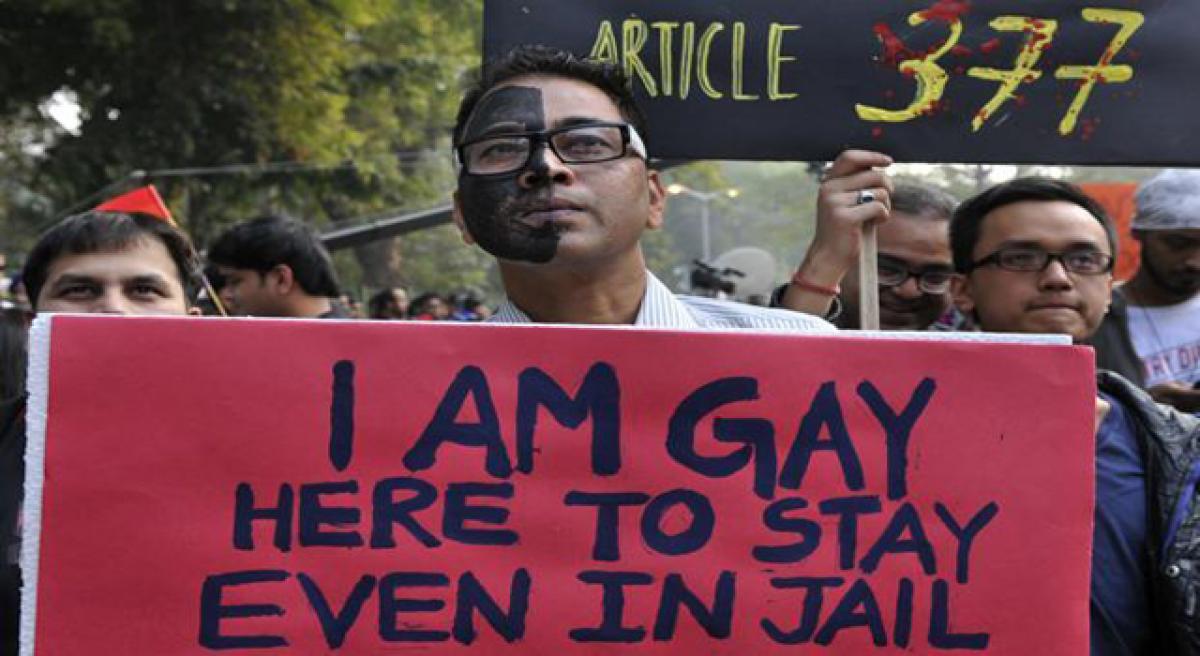Section 377

Chapter XVI, Section 377 of the Indian Penal Code dating back to 1861, introduced during the British rule of India (modelled on the Buggery Act of 1533, criminalises sexual activities \"against the order of nature\", arguably including homosexual sexual activities. The section was decriminalized with respect to sex between consenting adults by the High Court of Delhi on July 2009.
Chapter XVI, Section 377 of the Indian Penal Code dating back to 1861, introduced during the British rule of India (modelled on the Buggery Act of 1533, criminalises sexual activities "against the order of nature", arguably including homosexual sexual activities. The section was decriminalized with respect to sex between consenting adults by the High Court of Delhi on July 2009.
That judgement was overturned by the Supreme Court of India on 11 December 2013 with the Court holding that amending or repealing Section 377 should be a matter left to Parliament, not the judiciary. On 6 February 2016, the final hearing of the curative petition submitted by the Naz Foundation and others came for hearing in the Supreme Court.
The three-member bench headed by then the Chief Justice of India T S Thakur said that all the 8 curative petitions submitted will be reviewed afresh by a five-member constitutional bench. On 24 August 2017, the Supreme Court ruled that the Right to Privacy was a fundamental right, called for equality and condemned discrimination, stated that the protection of sexual orientation lies at the core of the fundamental rights and that the rights of the LGBT population are real and founded on constitutional doctrine.
Sambhaji Bhide sparks yet another controversy, calls for review of SC and ST (Prevention of Atrocities) Act. Section 377. Unnatural offences: Whoever voluntarily has carnal intercourse against the order of nature with any man, woman or animal shall be punished with imprisonment for life, or with imprisonment of either description for a term which may extend to ten years, and shall also be liable to fine.
Explanation: Penetration is sufficient to constitute the carnal intercourse necessary to the offence described in this section. The ambit of Section 377, extends to any sexual union involving penile insertion per se. Sexual acts such as fellatio and anal penetration may be punishable under this law. (Courtesy:https://en.wikipedia.org/wiki/Section_377_of_the_Indian_Penal_Code)








